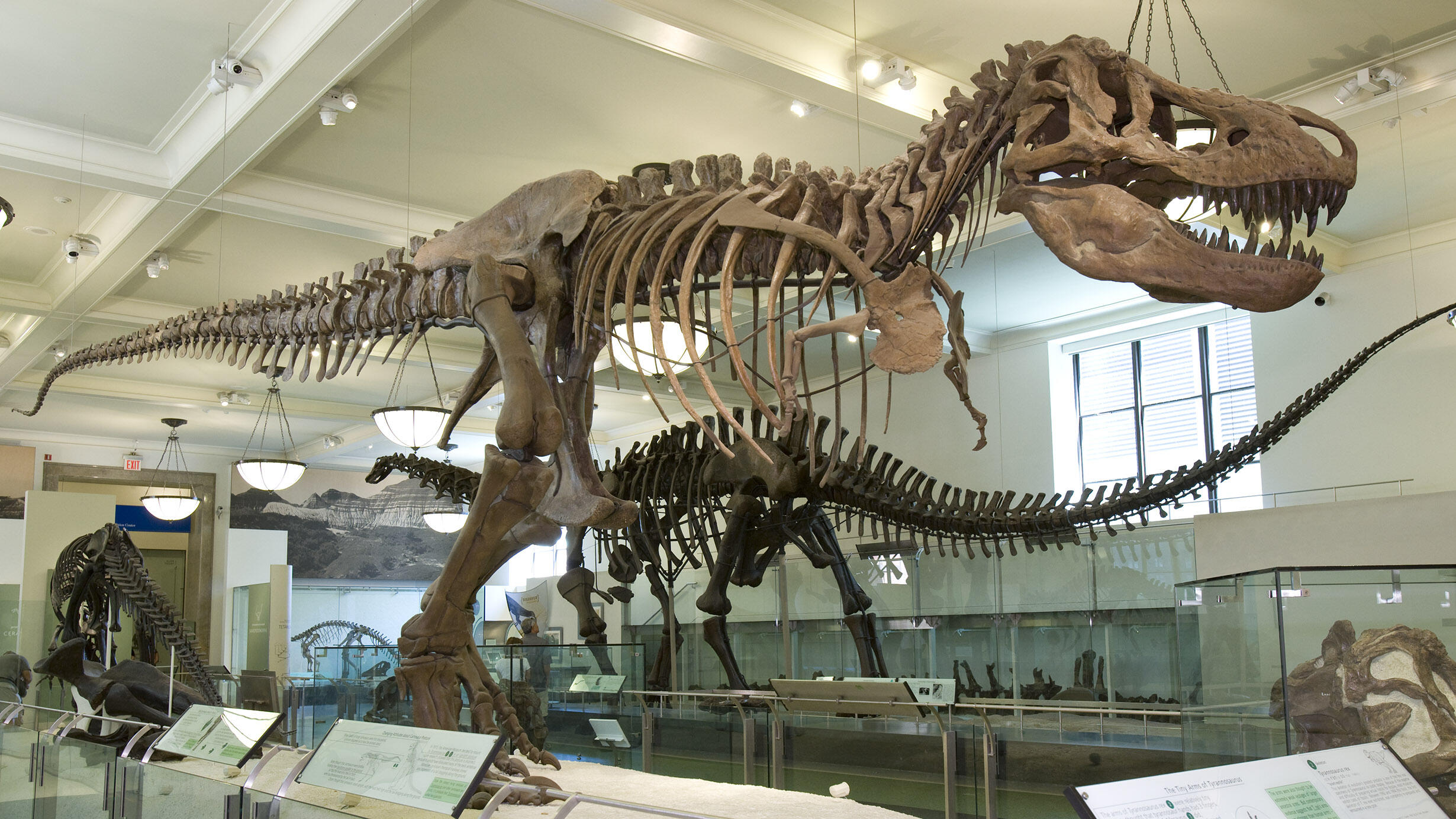Reopening Announcement
 D. Finnin/© AMNH
D. Finnin/© AMNH
In preparation for reopening with guidance from State, City, and public health authorities, the American Museum of Natural History today announced new operating days and hours, a new ticketing policy, and new health and safety measures, including new ticketing reservation requirements.
If indoor Museums are permitted to reopen, the Museum will reopen for Members and invited guests on September 2 and for the general public on September 9. The Museum will be prepared to deliver a blend of physical and digital experiences for all audiences, created by staff working both in the building and remotely, and to continue providing unique offerings and benefits to its dedicated community of Museum Members and visitors.
In preparing for reopening, the Museum has prioritized three goals:
- Protecting the health and safety of its staff and visitors;
- Continuing to deliver on its public service mission and program of scientific research and education; and
- Contributing to the recovery of New York City and the region by welcoming families, teachers, and learners of all ages.
Ellen V. Futter, President of the American Museum of Natural History, said, “We believe that the work of this Museum, which is fundamentally grounded in science, has never been more important. Institutions such as ours have a critical role to play in restoring our sense of progress and community by bringing us together virtually and physically to learn about the environment and the natural world around us, about one another and our diverse cultures and backgrounds, through experiences that are transporting, enriching, and, especially important at this time, joyful. Our digital offerings remain accessible to serve the widest possible audience on an ongoing basis, and we look forward to opening our doors on site as soon as possible to welcome the public back to the Museum.”
New operating procedures include:
- Opening to the public five days a week instead of seven, Wednesday-Sunday, from 10 am to 5:30 pm; and
- Requiring timed-entry tickets, reserved in advance online on the Museum’s website, as a means of limiting attendance at any one time. Reservations will also be available through the Museum’s Explorer app.
New regional ticketing:
- A pay-what-you-wish system for residents of New York State, New Jersey, and Connecticut, validated by showing appropriate ID to an onsite staff member, preserving the Museum’s current suggested admission policy for residents of the tri-state area; and
- A fixed admission fee for visitors from outside the tri-state area.
Permanent halls and special exhibitions:
Upon reopening, most of the Museum’s permanent halls will be open to the public, including those that contain such beloved icons as the Blue Whale, the Titanosaur, and T. rex and other fossils. Two special exhibitions will also be open:
- The Nature of Color, an exploration of what color reveals about the natural world and ourselves, which was on view for only a few days before the Museum had to close its doors in March; and
- T. rex: The Ultimate Predator, a popular exhibition about the world’s most iconic dinosaur, which opened in conjunction with the Museum’s 150th anniversary and is being extended.
To help protect against the spread of COVID-19, the Museum will keep closed for now its theaters (including the Hayden Planetarium), certain halls with a high proportion of touchable interactives (such as the Ross Hall of Meteorites, the Gottesman Hall of Planet Earth, and the Cullman Hall of the Universe), and the Museum’s public education laboratories. The Museum also will temporarily curtail services such as external visits to Museum collections, onsite professional development sessions for teachers, and non-employee visits to the Library.
New health protocols instituted to protect the health and safety of visitors and staff include:
- Limiting attendance in the building to 25% of normal visitation at reopening to allow ample room for physical distancing;
- Requiring facial coverings for all staff and visitors ages 2 and up;
- Requiring physical distancing, including signage to support it, throughout the Museum;
- Self-screening, including daily temperature checks for staff;
- Implementing enhanced cleaning procedures;
- Adding plexiglass barriers at ticket counters;
- Upgrading ventilation systems;
- Limiting elevator and restroom capacity to maintain physical distancing;
- Turning off or cordoning off interactive displays and other touchable exhibit elements;
- Providing hand sanitizer throughout the building; and
- Keeping certain visitor amenities closed for the immediate future, including food service, coat and bag check, and water fountains.
The Museum shut its doors on March 13, 2020, in what has become by far the longest public closure in its more than its 150-year history. Even during this global pandemic, with its staggering human loss and economic costs, the Museum has continued its work and mission of public service. Digital offerings from the past few months have included:
- Virtual Field Trips to four Museum halls, with offerings for grades K-12, to help teachers provide remote-learning experiences using Museum resources;
- COVID-19 programming and fact page with basic facts and the latest public-health information about the pandemic; and
- Livestream programs featuring presentations by scientists and live question-and-answer sessions on topics including spider webs, birdwatching, paleontology, space exploration, and human evolution.
The Museum will introduce additional digital content in the months to come to serve the public, educators, and learners from K-12.
In preparing for reopening, the Museum fully embraces its civic role of informing the public about the most important scientific issues of the day and highlighting the importance of fact-based scientific inquiry while also providing transformative experiences that enable visitors to learn, discover, and simply enjoy one another’s company.